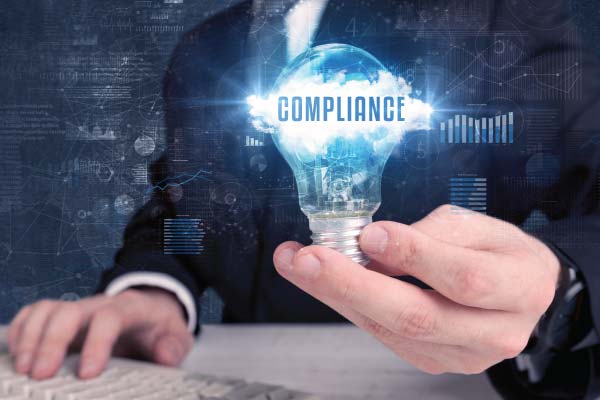How will Technology Impact the FMCG Sector in 2024?
19-Sep-24
India has established itself as a powerhouse in the global automotive industry. Currently, it ranks as the fourth-largest market in the world. In 2021, it sold over 3.75 million vehicles. With the automotive sector contributing significantly to India’s GDP, employment, and exports, the stakes are high. The production of nearly 26 million vehicles in the fiscal year 2022-2023 highlights its critical role in the economy.
However, with great output comes great responsibility. The automobile industry is subject to strict regulation at local, national, and international levels. Hence, compliance is crucial. It ensures adherence to stringent safety standards, emission regulations, and manufacturing guidelines. Non-compliance is not an option; it can result in severe legal repercussions, financial penalties, or operational suspensions.

In this post, we will explore the role of compliance in automobile industry in India. It serves as a glimpse at how robust compliance measures reduce legal risks, enhance brand reputation, and boost long-term profitability. We will delve into key challenges automakers face and the beneficial strategies to ensure continuous compliance.
Automobile companies in India face a complex array of compliance challenges that can impact their operations significantly. These include:
Addressing the various compliance challenges in India's automotive industry requires a comprehensive approach. Here are strategies that can help companies ensure better compliance:
To ensure compliance, it's crucial to understand and stay updated on the applicable legal and regulatory requirements. For instance, in the automobile industry, this includes:
Employee safety and welfare cannot be compromised. As a car manufacturer, you must ensure the following safety standards are met.
Companies are expected to implement rigorous onboarding processes for suppliers to ensure compliance from the ground up. This involves:
Adhering to strict environmental standards is crucial. Incorporate Environmental, Social, and Governance (ESG) criteria to comply in the following ways:
Manufacturers should ensure accurate documentation of financial transactions to comply with the following regulations when importing vehicle components.
Companies can create structured compliance frameworks in the following ways:
Brands could use advanced tools to enhance compliance management, such as:
An automobile company must ensure compliance throughout the supply chain through:
Compliance plays a critical role in shaping success in India’s automotive industry. Amid the constant activity of production lines, the success story of a company often hinges on their commitment to compliance. Those who prioritise compliance and manage regulations skillfully are able to boost their chances for improvement and expansion. This commitment to compliance ensures smooth operations and helps build a company's reputation. As automobile companies look to the future, their focus on compliance supports their progress and contributes significantly to their legacy.
Therefore, compliance is not just a regulatory requirement but a strategic decision. It empowers companies to innovate and grow responsibly, aligning with global standards and consumer expectations. As the industry evolves, maintaining high compliance standards remains essential for longevity and success. So, for companies in the automotive sector aiming to thrive, embracing and enhancing compliance practices is key.
Dun & Bradstreet, the leading global provider of B2B data, insights and AI-driven platforms, helps organizations around the world grow and thrive. Dun & Bradstreet’s Data Cloud, which comprises of 455M+ records, fuels solutions and delivers insights that empower customers to grow revenue, increase margins, build stronger relationships, and help stay compliant – even in changing times.

Gain your stakeholders confidence for increased business opportunities and establish your brand credibility.

Activate data and analytics to control supply chain risk and avoid the consequences of disruption. Learn more about our supply chain solutions.

Assess, investigate and monitor third parties for potential risk. Learn more about our compliance solutions.